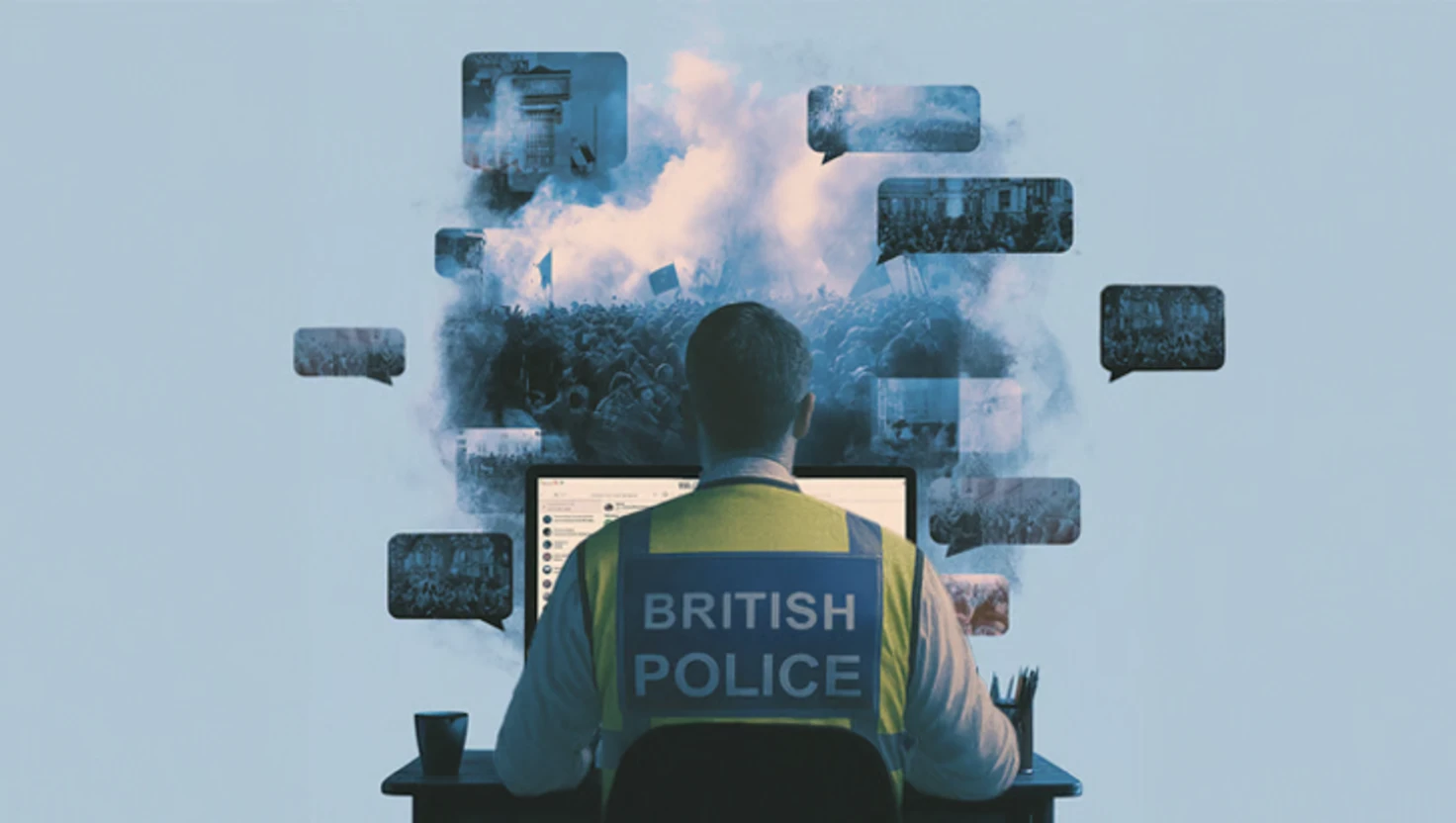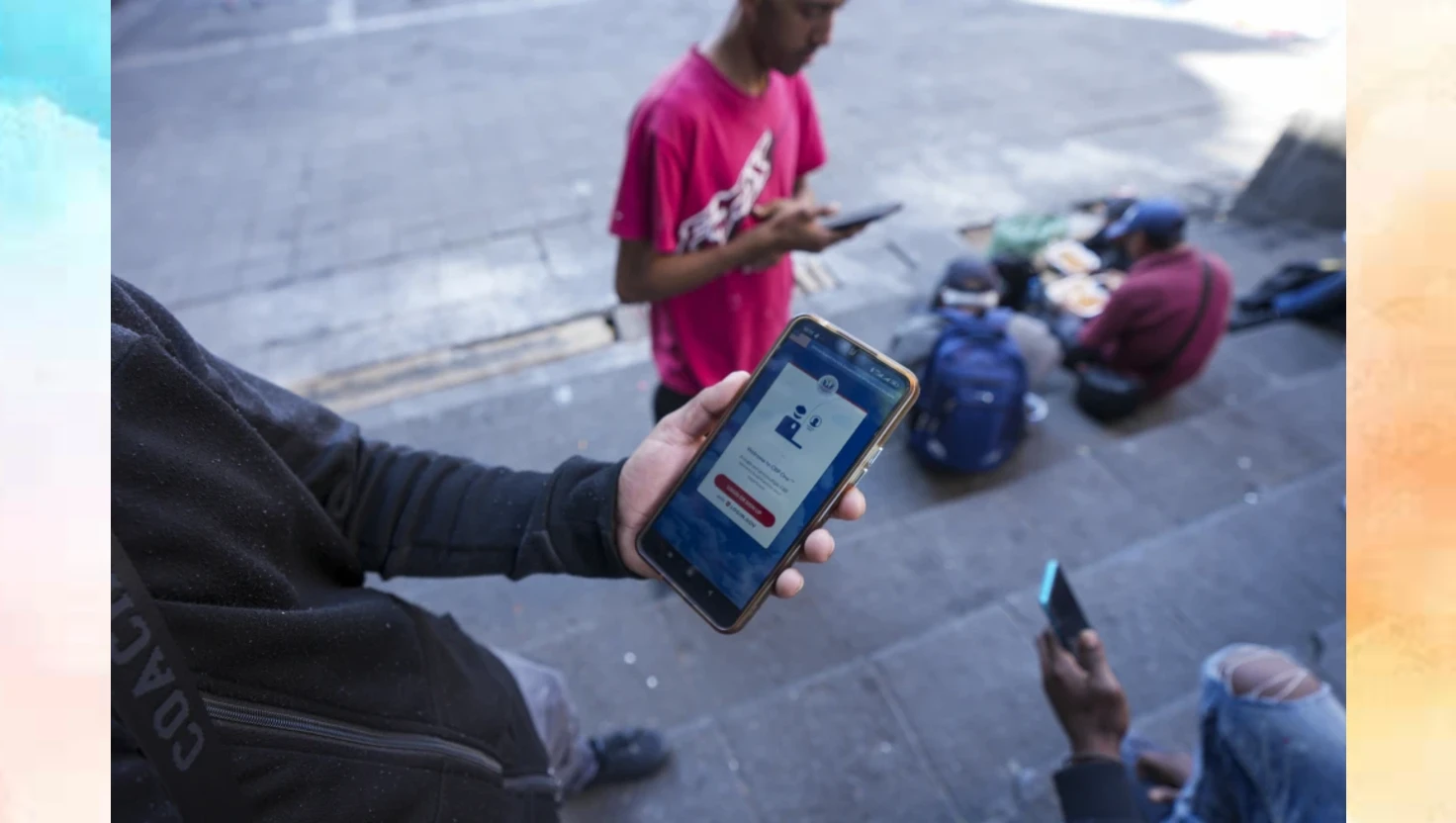UK police unit to monitor social media to track violent protests before they erupt

UK police unit to monitor social media to track violent protests before they erupt
The UK is launching a new police unit to monitor social media for signs of anti-migrant unrest. Officials say it will support public safety, but critics cite free speech concerns.
UK establishes internet intelligence unit to detect unrest
A new UK police team will monitor social media platforms for signs of anti-migrant unrest and public disorder, in an effort to improve national coordination following recent protests and online threats. The unit, announced by the Home Office, will be based at the National Police Coordination Centre (NPoCC) in Westminster and staffed by officers from across England and Wales.
The National Internet Intelligence Investigations team is expected to flag online activity that could indicate emerging civil unrest. It will also offer guidance to local police commanders on how to respond to digital intelligence, a move prompted by recommendations from parliamentary committees and law enforcement oversight bodies.
Improving coordination after past failures
The initiative comes in the wake of last year’s riots, during which police forces were widely seen as unprepared for the speed and scale of online mobilisation. In May, His Majesty’s Inspectorate of Constabulary and Fire & Rescue Services (HMICFRS) concluded that the police “had not kept pace with the fast-developing nature of online communications” and called for a national capability to address the issue.
In a letter to Members of Parliament shortly before the summer recess, Policing Minister Dame Diana Johnson confirmed that the unit would offer a “national capability to monitor social media intelligence and advise on its use to inform local operational decision-making”. She stated that initial funding had been secured until 2026, with the potential for continued support depending on future spending priorities.
According to the minister, the unit aims to “help forces manage public safety threats and risks”, particularly as tensions around asylum accommodation continue to rise. Recent demonstrations outside asylum seeker hotels have drawn crowds in cities such as Leeds, Norwich and Bournemouth.
Home Office backs preventive approach
A spokesperson from the Home Office said the team would assist police in “tracking real-time information and protecting communities from incidents and emergencies before they escalate”. The spokesperson added that the initiative forms part of the government’s broader “Plan for Change”, which seeks to restore neighbourhood policing and address public concerns such as knife crime, theft, and violence against women.
The NPoCC, which previously led the national police response during the Covid-19 pandemic under Operation Talla, will oversee the unit’s operations.
Criticism over surveillance and civil liberties
However, the announcement has sparked concern among opposition politicians and civil liberties groups. Some critics argue that the measure risks infringing on freedom of speech and represents a shift toward excessive state surveillance.
Shadow Home Secretary Chris Philp said the plan suggested the government was trying “to police what you post, what you share, what you think” because it was unable to effectively police the streets. “Labour have stopped pretending to fix Britain and started trying to mute it,” he told The Telegraph.
Reform UK leader Nigel Farage also condemned the move as “sinister” and “dangerous”, warning that the UK risked “controlling free speech under the guise of public safety”.
Triggering events and recent unrest
The decision to establish the team follows a series of heated protests, including incidents outside the Bell Hotel in Epping, Essex, where asylum seekers are being housed. Tensions escalated after reports that a resident had been charged with attempting to kiss a 14-year-old girl. Demonstrations initially began peacefully but turned violent after the arrival of far-right agitators, according to police reports.
Protesters in several towns have rallied with chants such as “Send them home” and “Put local people first”. While many voiced concerns about immigration policy, others were criticised for promoting hate speech.
Calls for improved online monitoring also intensified after a widely publicised tragedy in July 2023, when three girls were killed at a summer club in Southport. Investigations suggested the perpetrator had consumed violent content online in the days leading up to the incident.
Context: Balancing safety and rights in the digital age
The creation of the National Internet Intelligence Investigations team reflects a growing trend among governments worldwide to pre-empt social unrest by tracking online behaviour. The challenge lies in balancing public safety with the protection of individual rights, particularly in democratic societies where freedom of expression is a core value.
The UK government maintains that the team will operate within legal boundaries and support existing efforts to prevent violence. But its success may ultimately depend on how it navigates public concern around surveillance and whether it can deliver tangible improvements in safety without overstepping civil liberties.
As the political debate continues, the unit’s first major test may come with the next wave of protests. With public sentiment divided, law enforcement agencies are under increasing pressure to act swiftly, fairly and transparently—both online and on the ground.
A new UK police team will monitor social media platforms for signs of anti-migrant unrest and public disorder, in an effort to improve national coordination following recent protests and online threats. The unit, announced by the Home Office, will be based at the National Police Coordination Centre (NPoCC) in Westminster and staffed by officers from across England and Wales.
The National Internet Intelligence Investigations team is expected to flag online activity that could indicate emerging civil unrest. It will also offer guidance to local police commanders on how to respond to digital intelligence, a move prompted by recommendations from parliamentary committees and law enforcement oversight bodies.
Improving coordination after past failures
The initiative comes in the wake of last year’s riots, during which police forces were widely seen as unprepared for the speed and scale of online mobilisation. In May, His Majesty’s Inspectorate of Constabulary and Fire & Rescue Services (HMICFRS) concluded that the police “had not kept pace with the fast-developing nature of online communications” and called for a national capability to address the issue.
In a letter to Members of Parliament shortly before the summer recess, Policing Minister Dame Diana Johnson confirmed that the unit would offer a “national capability to monitor social media intelligence and advise on its use to inform local operational decision-making”. She stated that initial funding had been secured until 2026, with the potential for continued support depending on future spending priorities.
According to the minister, the unit aims to “help forces manage public safety threats and risks”, particularly as tensions around asylum accommodation continue to rise. Recent demonstrations outside asylum seeker hotels have drawn crowds in cities such as Leeds, Norwich and Bournemouth.
Home Office backs preventive approach
A spokesperson from the Home Office said the team would assist police in “tracking real-time information and protecting communities from incidents and emergencies before they escalate”. The spokesperson added that the initiative forms part of the government’s broader “Plan for Change”, which seeks to restore neighbourhood policing and address public concerns such as knife crime, theft, and violence against women.
The NPoCC, which previously led the national police response during the Covid-19 pandemic under Operation Talla, will oversee the unit’s operations.
Criticism over surveillance and civil liberties
However, the announcement has sparked concern among opposition politicians and civil liberties groups. Some critics argue that the measure risks infringing on freedom of speech and represents a shift toward excessive state surveillance.
Shadow Home Secretary Chris Philp said the plan suggested the government was trying “to police what you post, what you share, what you think” because it was unable to effectively police the streets. “Labour have stopped pretending to fix Britain and started trying to mute it,” he told The Telegraph.
Reform UK leader Nigel Farage also condemned the move as “sinister” and “dangerous”, warning that the UK risked “controlling free speech under the guise of public safety”.
Triggering events and recent unrest
The decision to establish the team follows a series of heated protests, including incidents outside the Bell Hotel in Epping, Essex, where asylum seekers are being housed. Tensions escalated after reports that a resident had been charged with attempting to kiss a 14-year-old girl. Demonstrations initially began peacefully but turned violent after the arrival of far-right agitators, according to police reports.
Protesters in several towns have rallied with chants such as “Send them home” and “Put local people first”. While many voiced concerns about immigration policy, others were criticised for promoting hate speech.
Calls for improved online monitoring also intensified after a widely publicised tragedy in July 2023, when three girls were killed at a summer club in Southport. Investigations suggested the perpetrator had consumed violent content online in the days leading up to the incident.
Context: Balancing safety and rights in the digital age
The creation of the National Internet Intelligence Investigations team reflects a growing trend among governments worldwide to pre-empt social unrest by tracking online behaviour. The challenge lies in balancing public safety with the protection of individual rights, particularly in democratic societies where freedom of expression is a core value.
The UK government maintains that the team will operate within legal boundaries and support existing efforts to prevent violence. But its success may ultimately depend on how it navigates public concern around surveillance and whether it can deliver tangible improvements in safety without overstepping civil liberties.
As the political debate continues, the unit’s first major test may come with the next wave of protests. With public sentiment divided, law enforcement agencies are under increasing pressure to act swiftly, fairly and transparently—both online and on the ground.

US Seeks Collection of Social Media Handles on Immigration Forms
US immigration authorities propose a wider collection of social media handles from benefit applicants, raising concerns over privacy, speech rights, and oversight.
| 2025-07-30

Protest against US government proposal to collect immigrants’ social media information
Civil rights groups warn that a new USCIS plan to collect social media data from immigrants could undermine privacy, free speech, and fair process.
| 2025-07-30

OpenAI bans Chinese accounts working for social media surveillance company
OpenAI bans China-linked accounts accused of using ChatGPT to monitor protests abroad and send reports to Chinese authorities.
| 2025-07-30




